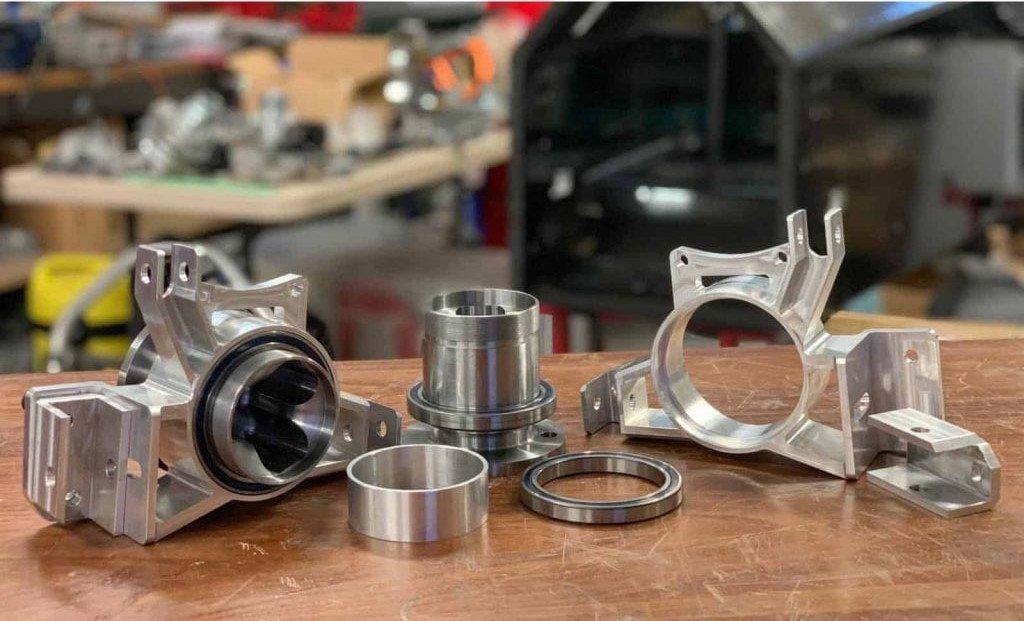Formula Student: EV3 Pedal Box and Suspension
Imperial Racing Green is a multidisciplinary group of students who come together to design, manufacture and test race vehicles which will ultimately compete in a range of extracurricular events, including Formula Student. As a member of Imperial Racing Green, I had the opportunity to spend my free time during the first two years of my degree working as a Design Engineer for the development of EV3 - our team's vehicle for Formula Student competitions.
Imperial Racing Green
“EV3 is Imperial Racing Green’s latest Formula Student car, being developed for competition at the Formula Student UK competition at Silverstone in July 2019. In keeping with IRG’s focus on environmentally-friendly technologies, it is a fully electrically-powered vehicle, with a large lithium-ion battery providing energy storage. EV3 represents a totally new vehicle concept; the car is built around a hybrid chassis, the main portion of which is a monocoque produced from folded carbon fibre/aluminium honeycomb panels, which is then attached to a conventional steel spaceframe at the rear. This layout allows for substantial weight savings compared to a full-steel design while costing much less to produce than a full moulded carbon monocoque.”
I was specifically involved in the development of the Suspension and Pedal Box subsystems. This gave me an opportunity to develop my technical skills but also my interpersonal and organisational skills necessary to be part of a competitive team.
Pedal Box
As a member of the Pedal Box and Hydraulics division, I worked as part of a team to develop a new set of pedals that would comply with the regulations, be lighter and be more affordable to manufacture than the previous solution.
The most critical component in the pedal box is the brake pedal which must be able to withstand up to 2000 N of force, according to the regulations. For the new pedal box, I employed stress analysis calculations as well as Finite Element Analysis techniques that made it possible to select dimensions which minimised the mass of the pedal for the required loading conditions. The finished brake pedal satisfied the spatial constraints inside the cockpit while also being able to be manufactured using standard CNC methods available at the university's workshop.
The overall pedal box assembly designed by our team contributed to EV3 achieving a joint 4th result in the Class 2 Design event in Formula Student UK 2018.
Suspension
The general design of the suspension system was selected by the team and the steering committee of Imperial Racing Green to be a 'pushrod-actuated double wishbone' suspension. Therefore, as a member of the Suspension division, my main role was to work together with other students to carry out the detailed design and produce the engineering drawings for components that needed to be manufactured.
For this project, I assisted in the selection of steel tubes that would be used for the pushrods as well as be welded together to create the wishbone control arms for the suspension. Data collected by the team from previous competitions and computer simulations were used to calculate the suspension loads and ensure that these components would be safe to use. I also contributed to the development of the rear wheel uprights by generating correctly dimensioned and toleranced engineering drawings which were then sent to an external supplier to manufacture the parts by CNC. During this project I also developed practical skills by fabricating a range of components including rod-end tube adapters to be used in the pushrods and wishbone control arms.
Our team's developments were implemented in EV3 in 2019, allowing Imperial Racing Green to make a return to the Formula Student UK Class 1 events for the first time in three years.













